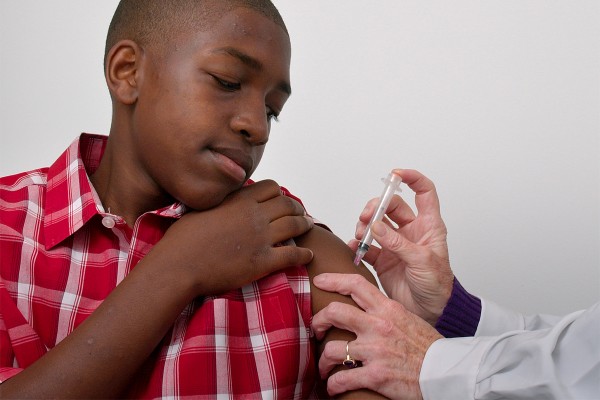Siteman: On the front lines in the fight against HPV
Most cancers caused by the human papillomavirus (HPV) are preventable with a vaccine. Yet the infection is responsible for 27,000 cancer diagnoses each year in the U.S. Siteman Cancer Center and the School of Medicine is joining with the 68 other National Cancer Institute-Designated Cancer Centers to promote HPV vaccination and reduce that number.
Wash U Expert: Measles not only serious disease we’re failing to vaccinate against
While measles and the human papillomavirus (HPV) are vastly different diseases, failing to get vaccinated against them can have equally serious consequences, suggests Bradley Stoner, PhD, a medical anthropologist who studies infectious disease transmission at Washington University in St. Louis.
New center aims to use immune system to fight cancer, other diseases
A new center at the School of Medicine will help scientists use the power of the immune system to fight infections and cancers. The Center for Human Immunology and Immunotherapy Programs is part of BioMed21, Washington University’s initiative to accelerate basic science discoveries into improved diagnosis and treatment for patients.
A third of young girls get HPV vaccine to prevent cervical cancer
Only about one in three young women has received the human papillomavirus (HPV) vaccine to help prevent cervical cancer, according to a new report from researchers at Washington University School of Medicine in St. Louis. The HPV vaccine prevents four strains of the sexually transmitted human papillomavirus, two of which are found in about 70 percent of all women with cervical cancer. But the new data shows only 34 percent of girls ages 13 to 17 were being vaccinated in six states that were surveyed.
Typhoid fever genomes to help scientists seek better vaccines
Salmonella entericaEvery year in developing nations, typhoid fever infects more than 16 million people and kills more than half a million. Researchers hoping to reduce this heavy toll have an important new tool: completed genomes for the two bacteria that are the leading causes of typhoid fever.

